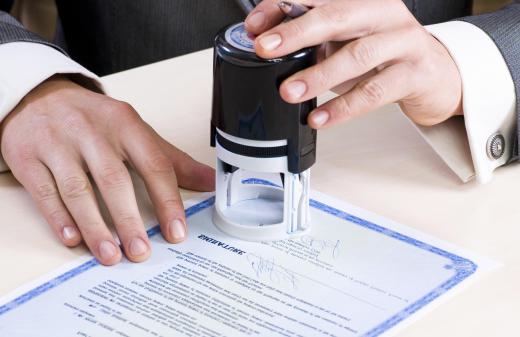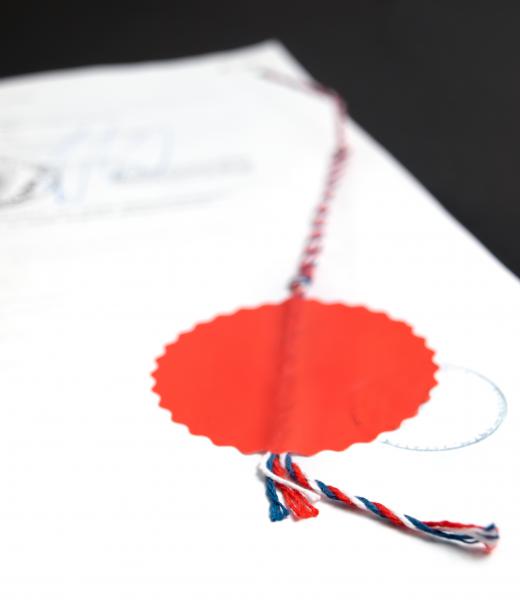Attestation is the act of bearing witness. It can take a number of different forms in a legal sense. Generally speaking, it refers to an activity in which someone confirms something with a written or oral oath. A simple example of an attestation might be a signature on the bottom of a legal document from a notary public indicating that he or she saw the author write out and sign the document.
In some cases, an attestation is simply a verification that a document was signed in front of witnesses. By signing, the witnesses attest that they saw the document being signed and were aware of the identity of the signatory. They are not, however, attesting to anything in the document itself; the document may be incorrect or improperly filled out, for example, but this is not the responsibility of the people who attested to it.

An attestation can also provide additional information about the signatory. On the attestation clause added to a will, for example, the people who sign indicate that the testator was of sound mind when the will was written, and was thus able to freely make decisions. This is used to support claims that the will is valid. If the witnesses do not confirm that the testator was of sound mind, someone may argue that the will should not be accepted because of doubts about the testator's mental status.

Attestations can also appear in the form of documents providing information which the signatory attests is correct. For example, someone applying for a job may be asked for an attestation letter from a previous employer confirming the dates of employment and pay stated in the employment application. Likewise, an attestation letter may be written by someone as part of an application for professional certification, indicating that she or he has fulfilled the stated requirements.

When someone makes an attestation, she or he is legally liable for whatever is being attested to. People should be careful when they are asked to attest to something to make sure that they understand their liability. If, for example, someone is asked to attest that he or she saw someone signing a legal document, he or she should not provide an attestation for a document which has already been signed. A false attestation can be grounds for liability in court and it is important to remember that attestations, no matter how trivial they might seem, can be used as evidence in court.
Frequently Asked Questions
What exactly is attestation?

Attestation is the process through which a competent authority verifies the legitimacy of a document or signature. Typically, this is performed by a notary public, an attorney, or another authorized professional. The attestant compares the document or signature to the original, and then signs and stamps the document to attest that it is an accurate copy or that the signature is legitimate.
What kinds of documents must be attested?

Certificates of education, job documents, passport copies, powers of attorney, and other legal documents typically require attestation. When submitting documents to a foreign government, educational institution, or job, attestation is typically required to prove their authenticity.
How long does it take to attest?
The time required to complete the attestation process varies based on the type of document, the country where the document will be used, and the specific criteria of the recipient organization. Certain documents may necessitate numerous stages of authentication, prolonging the procedure. It is advised to initiate the procedure as soon as possible to avoid any delays.
Who can administer attestation?
Only authorized individuals, such as notaries public, attorneys, or embassy officials, are permitted to attest documents. To avoid concerns with the document's legitimacy, it is vital to confirm that the attesting organization is recognized by the receiving organization.
What are the advantages of certification?
Attestation assures the receiving organization that a document is genuine and has not been tampered with. This helps create credibility and trust between parties, especially when transacting internationally. Attestation can also speed up the process of acquiring visas, work permits, and other essential documents required for travel or employment in foreign countries.
